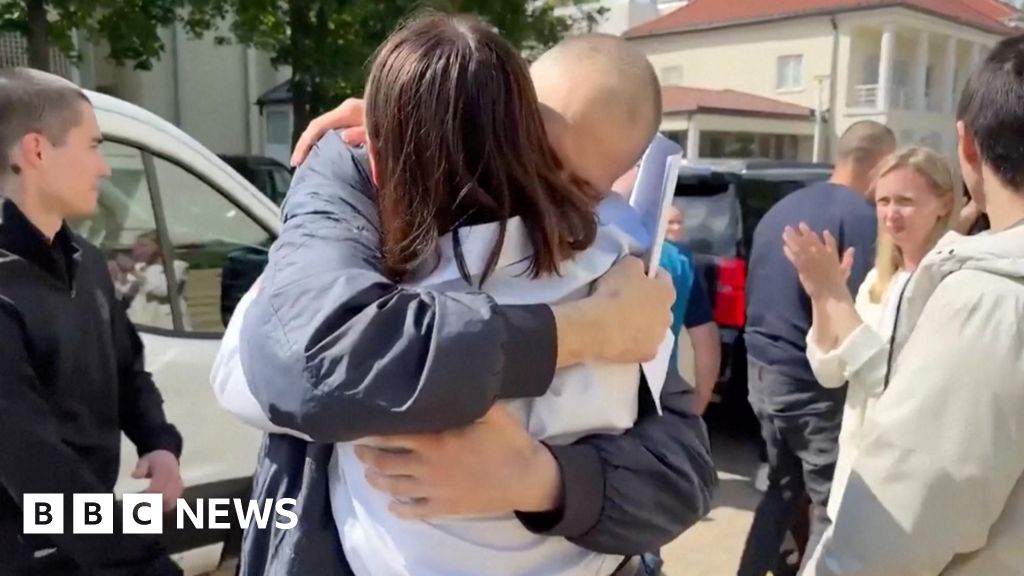Unexpected Release of Belarusian Opposition Leader’s Husband
Sergei Tikhanovsky, husband of Belarusian opposition leader Svetlana Tikhanovskaya, has been released from prison in Belarus along with 13 other political prisoners. The former activist has been moved to Lithuania, where he reunited with his wife, who is currently living in exile in Vilnius, after spending five years behind bars.
Svetlana announced this joyful news by sharing a 10-second video documenting their first embrace since 2020, expressing that it was “hard to describe” her happiness.
The unexpected release coincided with a visit to Minsk by U.S. special envoy Keith Kellogg, who met with Belarus’ authoritarian leader, Alexander Lukashenko, on Saturday. In a statement, the Lithuanian foreign minister confirmed that 14 political prisoners had been freed and were receiving assistance in Lithuania, including some from Belarus, Japan, Poland, and Sweden.
However, Tikhanovsky’s release is particularly significant. A well-known figure with a colorful personality, he once held considerable sway on social media in Belarus, urging people to “stop the cockroach”, a reference to Lukashenko. Despite the risks posed by the repressive regime, Tikhanovsky engaged with the public across the country to hear their grievances. He was arrested in 2020 while campaigning against Lukashenko in that summer’s elections.
Convicted to an 18-year prison term in 2021 for inciting mass protests, Tikhanovsky’s absence led his wife, an initially unknown political novice, to run in his place. Following Lukashenko’s declared victory, widespread protests erupted across Belarus, but they were met with brutal crackdowns, forcing Tikhanovskaya into exile. Other prominent opposition figures remain imprisoned, including Maria Kolesnikova, whose sister confirmed that she was not among those released.
Despite appearing thinner and bearing a shaved head in the video, colleagues stated that Tikhanovsky retains the same drive and energy he had prior to his imprisonment. Tikhanovskaya expressed gratitude on social media for the international efforts leading to her husband’s release and highlighted the ongoing plight of 1,150 political prisoners still detained in Belarus.
While some speculate that Lukashenko’s decision to release Tikhanovsky could signal an attempt to improve diplomatic relationships, it remains uncertain if any concessions were made. The Belarusian leader has faced ongoing isolation from Western nations, with his regime facing accusations of authoritarianism and complicity in Russia’s invasion of Ukraine. Ultimately, Tikhanovsky’s release suggests a larger geopolitical strategy for Lukashenko amidst ongoing political repression in Belarus.



